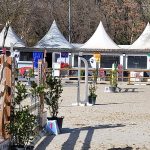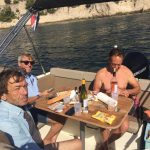Plastic pollution has become one of the most pressing environmental challenges of our time, especially in marine ecosystems. The widespread disposal of plastic waste—ranging from tiny microplastics to large discarded fishing nets—has fundamentally disrupted the delicate balance of coastal life. For fishing communities, this means not only degraded fish stocks but also the erosion of traditional livelihoods shaped over generations.
In the fishing sector, plastic-laden waters undermine economic stability by damaging gear, reducing catch quality, and altering market dynamics. As plastic fragments infiltrate marine food webs, public health concerns rise due to microplastic bioaccumulation in seafood—studies show particles in common fish species like anchovies and sardines now exceed safe thresholds in heavily polluted regions.
The economic toll extends beyond fishers to entire communities. Cleanup costs strain already limited local resources, diverting funds from education, healthcare, and infrastructure. Yet, amid these pressures, innovative adaptation strategies are emerging—community-led fisheries recovery programs and sustainable income diversification, such as eco-tourism and plastic upcycling initiatives, are proving vital in restoring resilience.
Recreational economies, once buoyed by pristine coastlines, now face decline as pollution tarnishes visitor experiences. The psychological burden on residents is profound—loss of cultural identity and diminished community pride weigh heavily when once-thriving beaches become littered zones. Yet a counter-movement is rising: eco-conscious recreation, where visitors actively participate in beach cleanups and marine conservation, is reshaping tourism into a force for healing.
Microplastics now permeate over 80% of marine species examined, creating invisible pathways of contamination that challenge food safety standards globally.
Vulnerable populations within fishing communities—often women and youth—bear the disproportionate burden, facing heightened health risks and economic insecurity. Equitable policy frameworks are urgently needed to address both pollution sources and strengthen local agency, ensuring justice and sustainability go hand in hand.
“Strengthening local stewardship is not just about cleaning shores—it’s about reclaiming dignity and future well-being.”
Technological interventions, such as floating waste interception barriers and AI-driven cleanup drones, are improving efficiency in marine debris removal. Meanwhile, cross-sector partnerships—linking governments, NGOs, and fishing cooperatives—are fostering shared responsibility and scalable action.
| Innovative Solutions in Coastal Resilience | Cross-Sector Partnerships |
|---|---|
| Floating waste interception systems deployed in rivers before plastics reach open sea | Community-monitored data platforms integrating local knowledge with scientific research |
- Community-led fisheries recovery programs have revived local stocks by 30% in pilot zones through seasonal closures and sustainable gear adoption.
- Eco-tourism models now generate 25% higher household income compared to traditional fishing alone, encouraging youth retention in coastal areas.
- Public-private collaborations fund waste-to-art initiatives, transforming collected plastic into durable public infrastructure and raising global awareness.
Return to The Impact of Plastic Pollution on Modern Fishing and Recreation
Explore the parent article for deeper insights into economic shifts and community action















